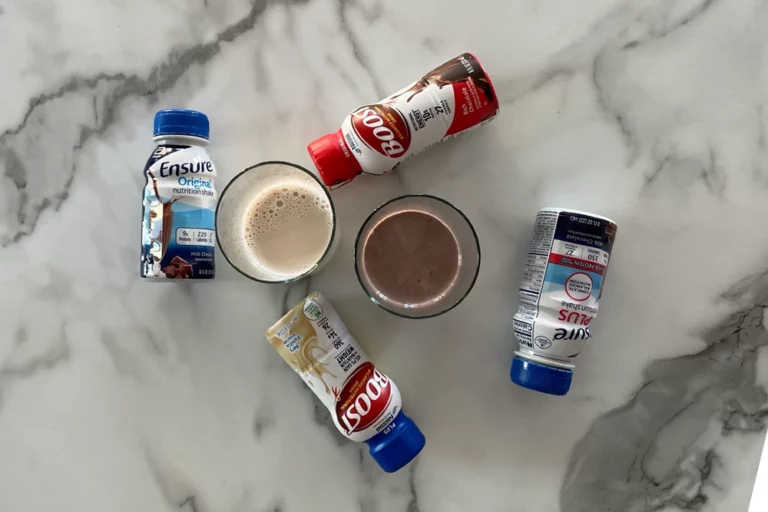5 Best Natural Appetite Stimulants for Weight Gain
Whether due to a health condition, the use of certain medications, or advancing age, poor appetite can occur for various reasons.
Having a poor appetite can make it difficult for you or a loved one to eat enough food to maintain a healthy body weight and get enough nutrients like vitamins and minerals.
The best way to overcome a poor appetite is to treat the underlying cause, but when that’s not possible, appetite stimulants may help.
Prescription appetite stimulants like megestrol acetate (Megace), mirtazapine (Remeron), and cyproheptadine (Periactin) are the most popular, but there are natural appetite stimulants that you can purchase over the counter.
This article reveals the top five best natural appetite stimulants.

A quick look at the best natural appetite stimulants
- Fish oil
- Zinc
- Iron
- Thiamin
- Essential oils
1. Fish oil
Fish oil is rich in heart-healthy omega-3 fatty acids, namely EPA (eicosapentaenoic acid) and DHA (docosahexaenoic acid).
Many people supplement with fish oil for its beneficial effects on triglycerides (a type of fat in the blood), heart health, depression, and cognitive function, but it may also help stimulate appetite (1).
In one study, healthy men and women were randomized to supplement with 3.5 grams of fish oil or 5.2 grams of soybean oil daily for three weeks (2).
Participants who received the fish oil reported a 20% lower feeling of fullness after a meal, which led women to report an increased desire to eat more.
Similar results were found in another study where male athletes reported a significant increase in hunger after supplementing with two grams of omega-3 fatty acids (3).
What’s more, a study showed that 12 weeks of supplementation with about two grams of EPA increased appetite with a similar effect as megestrol acetate — a prescription appetite stimulant — in patients with cancer (4).
It’s unclear how fish oil may increase appetite in certain people but researchers believe it may influence hormones like serotonin and the expression of certain genes that regulate appetite and body weight.
Fish oil may also increase appetite, especially in those with chronic diseases like kidney disease or Alzheimer’s disease, by decreasing inflammation, which when high, decreases appetite (5, 6).
However, fish oil may not be beneficial for increasing appetite when used for less than two weeks (7).
2. Zinc
Zinc is a mineral necessary for growth and development. It’s also necessary for proper taste and smell and plays an important role in healing damaged tissues and supporting immune function (8).
Most people supplement with zinc for its ability to bolster the immune system and shorten the duration and severity of the common cold (9).
Beyond this use, zinc supplementation may help stimulate appetite, especially in those who are deficient or have suboptimal levels of the mineral (10).
One study in undernourished children with low zinc levels found that supplementation with 10 mg of elemental zinc for 24 weeks significantly increased appetite and growth (11).
Interestingly, this same dose of zinc has also been shown to increase appetite in children who reported a poor appetite but with normal zinc levels (12).
In older adults, zinc supplementation can enhance appetite and improve taste and smell, also helping to stimulate appetite (13).
Older adults are particularly at risk for low zinc levels due to poor intake of the mineral and the presence of certain chronic diseases that decrease zinc absorption like diabetes and kidney and liver disease (14).
To this point, zinc supplementation can be a relatively inexpensive way to boost older adults’ taste and smell and, therefore, appetite to promote food intake.
A dose of 30 mg of zinc per day for three months is effective for raising zinc levels in older adults but a longer supplementation duration may be needed, depending on the pre-supplementation levels (15).
People who are at risk for zinc deficiencies or inadequate levels include (8):
- vegetarians, especially vegans
- pregnant or lactating women
- exclusively breastfed older infants
- children with sickle cell disease
Additionally, many digestive conditions like celiac disease and inflammatory bowel disease, including ulcerative colitis and Crohn’s disease.
3. Iron
Iron is a necessary component of hemoglobin, a protein in red blood cells that delivers oxygen from the lungs to your body’s tissues (16).
Iron is also necessary for proper growth, brain development, and to make certain hormones.
Similar to zinc, an iron deficiency can decrease appetite, and restoring iron levels with supplementation can stimulate appetite (17).
Several studies in malnourished children with iron deficiency showed that supplementing with iron for 12–14 weeks led to significant improvements in growth and appetite (18, 19).
However, another study found no effect of a multivitamin supplement with iron on appetite or growth in malnourished children after six weeks, suggesting a longer supplementation duration may be needed to increase appetite in this population.
In another study, adults with iron deficiency anemia who received iron infusions — a treatment where iron is given through a vein — experienced a significant increase in their appetite from pre-infusion (17).
Low iron levels may decrease appetite by increasing leptin levels and blunting the body’s response to ghrelin, the hormone that increases hunger (17, 20, 21).
Populations at risk for an iron deficiency include (16):
- infants
- young children
- teenage girls
- pregnant women
- premenopausal women
- frequent blood donors
People with certain conditions like cancer, digestive disorders like celiac disease and inflammatory bowel disease, or heart failure are also at an increased risk for an iron deficiency.
4. Thiamin
Thiamin — also known as vitamin B1 — plays an important role in energy production and is necessary for the growth, development, and function of your body’s cells (22).
It’s another nutrient that increases appetite when supplemented by people with low levels.
In one study, older adults who reported a poor appetite before admitting to the hospital were 10 times more likely to have a thiamin deficiency than those who reported no declines in appetite (23).
A thiamin deficiency is believed to decrease appetite by blocking an enzyme in the brain that regulates food intake and energy balance (24).
Restoring thiamin levels has been shown to reverse this effect and increase appetite in animal studies (24).
Indeed, a study in older adults with low thiamine levels demonstrated significant increases in appetite, calorie intake, and body weight after six weeks of supplementing with 10 mg of thiamine (25).
A thiamin deficiency is most common in older adults and people with alcohol dependence, HIV or AIDS, and diabetes.
5. Essential oils
Essential oils are aromatic oils extracted from plants.
They have a long history of use for managing various conditions and diseases and have gained popularity over the years (26).
The most common way to use essential oils is to inhale them — either directly out of the bottle or by using a diffuser — but you can also apply some types to your skin.
Of their many uses and types, inhaling essential oils from cinnamon, clove, and fennel may enhance appetite by stimulating the receptors that play a central role in smell and hunger (27).
A combination of cinnamon bark, clove, and fennel may produce greater appetite-enhancing effects than when used individually.
Additionally, longer inhalation periods (around an hour) may produce better effects than shorter inhalation periods, so using an essential oil diffuser may be best.
However, there is limited evidence in humans on the potential appetite-stimulating effects of these essential oils, but the current research is promising.
The bottom line
A poor appetite is usually a symptom of a condition or a side effect of a medical treatment or drug.
It can also occur naturally as part of the aging process.
A poor appetite can make it difficult to get enough calories and nutrients to support a healthy body weight.
While prescription appetite stimulants — sometimes referred to as weight gain pills — exist, there are several natural alternatives.
Fish oil and certain essential oils may help stimulate appetite, while zinc, iron, and thiamine have also been shown effective, particularly in people with low levels.
Weight gain syrups commonly contain these nutrients. You can read more about weight gain syrups here.







